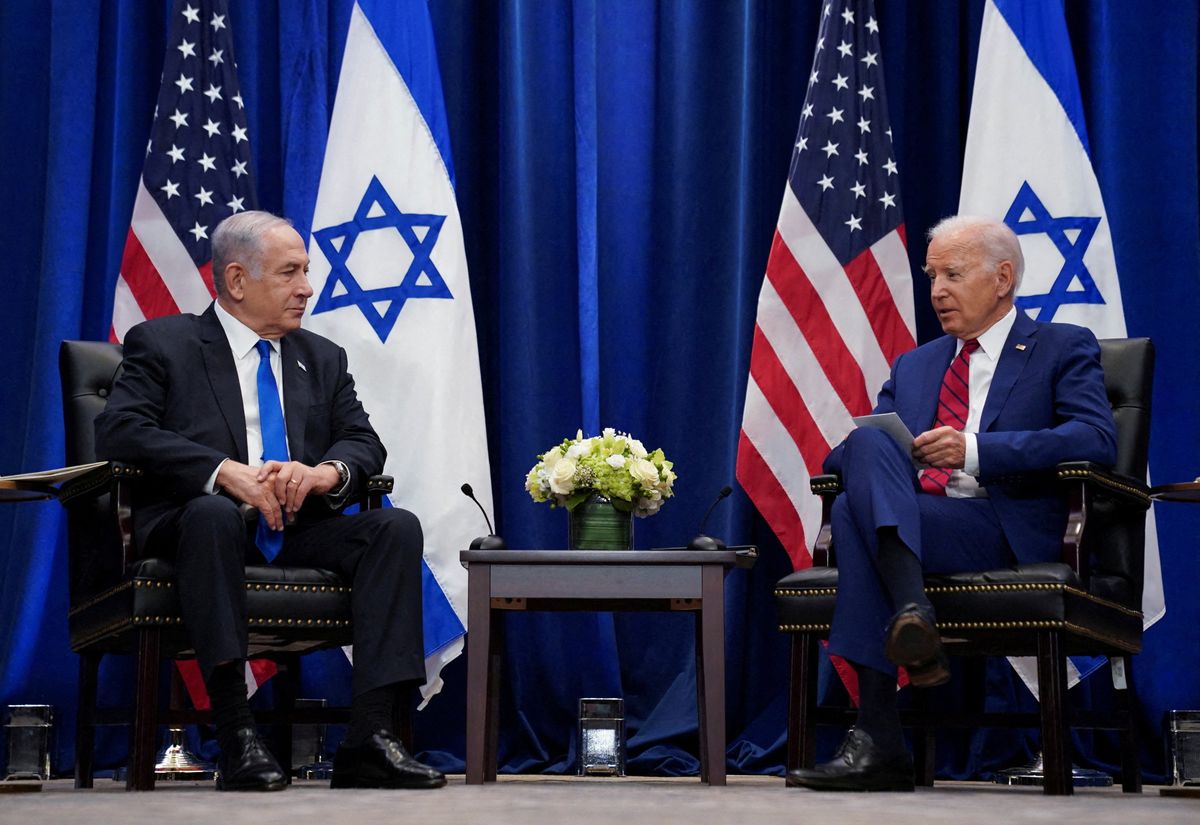It's official – after a few days of turning the invite over in his hands, US President Joe Biden will visit Israel on Wednesday.
The announcement came in the wee hours of Tuesday morning from Secretary of State Antony Blinken, after more than seven hours of talks in Tel Aviv with Israeli PM Benjamin Netanyahu. The marathon session was focused on shoring up US support for Israel while also seeking ways to limit the humanitarian impact of Israel's imminent ground invasion of Gaza.
The situation in Gaza is dire and getting worse. Nearly 400,000 people, about a quarter of the population, are already displaced within the Las Vegas-sized enclave. Supplies of water, fuel, and electricity are running low under a tight Israeli siege. UN aid and medical supplies remained piled up near the Gaza-Egypt border crossing at Rafah on Monday, as Israel, Egypt, and Hamas were unable to broker even a limited ceasefire to allow the shipments through.
Gaza authorities said Monday that the Israeli airstrikes that have come in response to Hamas' Oct. 7 rampage have now killed more than 2,800 people and wounded nearly 11,000. Israel, for its part, increased the official toll of the Hamas attack to 1,400 dead and 199 taken hostage.
Meanwhile, in northern Israel, limited clashes erupted on Monday evening between Israeli forces and Hezbollah, the powerful Iran-backed militant group that is based across the border in Lebanon.
Why would Biden go to Israel at a time like this?
To keep things in check. Biden's trip will show solidarity with a longstanding US ally and make clear to Israel's rivals in the region – Iran, Syria, and their friends in Moscow – that entering the war would risk direct confrontation with the world’s most powerful military. Over the past week, the US has sent two carrier groups to the waters off the Israeli coast, and a 2,000-strong rapid response force of US Marines is also en route to the area, reportedly for the purpose of assisting with the evacuation of US citizens.
To play to the home crowd. Some 70% of Americans polled by CNN said Israel’s military response is justified, and a similar percentage say they feel “a lot” of sympathy for Israelis. The comparable figure for Palestinians, meanwhile, was barely half of that.
To put a little pressure on Israel in person? Biden administration officials have been speaking more about the humanitarian crisis in Gaza in recent days, and Biden's trip creates more time to address that. After all, Netanyahu is almost certain to wait until after the US president leaves to unleash the widely expected ground invasion, which alone buys several extra days to negotiate a deal to open the Rafah border crossing, as well as to designate humanitarian "safe zones" within Gaza, which Israel would avoid attacking.
That's consistent with a slight but perceptible change of tone from Biden since the end of last week. In a "60 Minutes" interview on Sunday, he warned Netanyahu against reoccupying Gaza, which Israel pulled out of in 2005, and insisted that while the US supports Israel's war to eliminate Hamas, any outcome must preserve the path to a Palestinian state. The chilly reception that Blinken received over the weekend in Cairo and Riyadh – key Arab allies for the US who have sharply criticized Israel's airstrikes on Gaza – may have contributed to the White House's slight change of tone. A tête-à-tête gives the president a chance to press Netanyahu directly on what the end game really is.
But there are risks too. For one thing, Biden will be flying into a war zone – Israel's Ben Gurion Airport and its surroundings lie just 50 miles from Gaza – well within range of Hamas rockets.
But the bigger risk for Biden has to do with perceptions. Israel is about to launch what by all accounts will be a grinding and bloody campaign to root out Hamas from Gaza. The impact on Gaza’s tightly packed civilian population will be in the global spotlight. By showing up on the eve of that carnage, Biden is – for better or worse – tying his administration to the legacy of what happens next.






